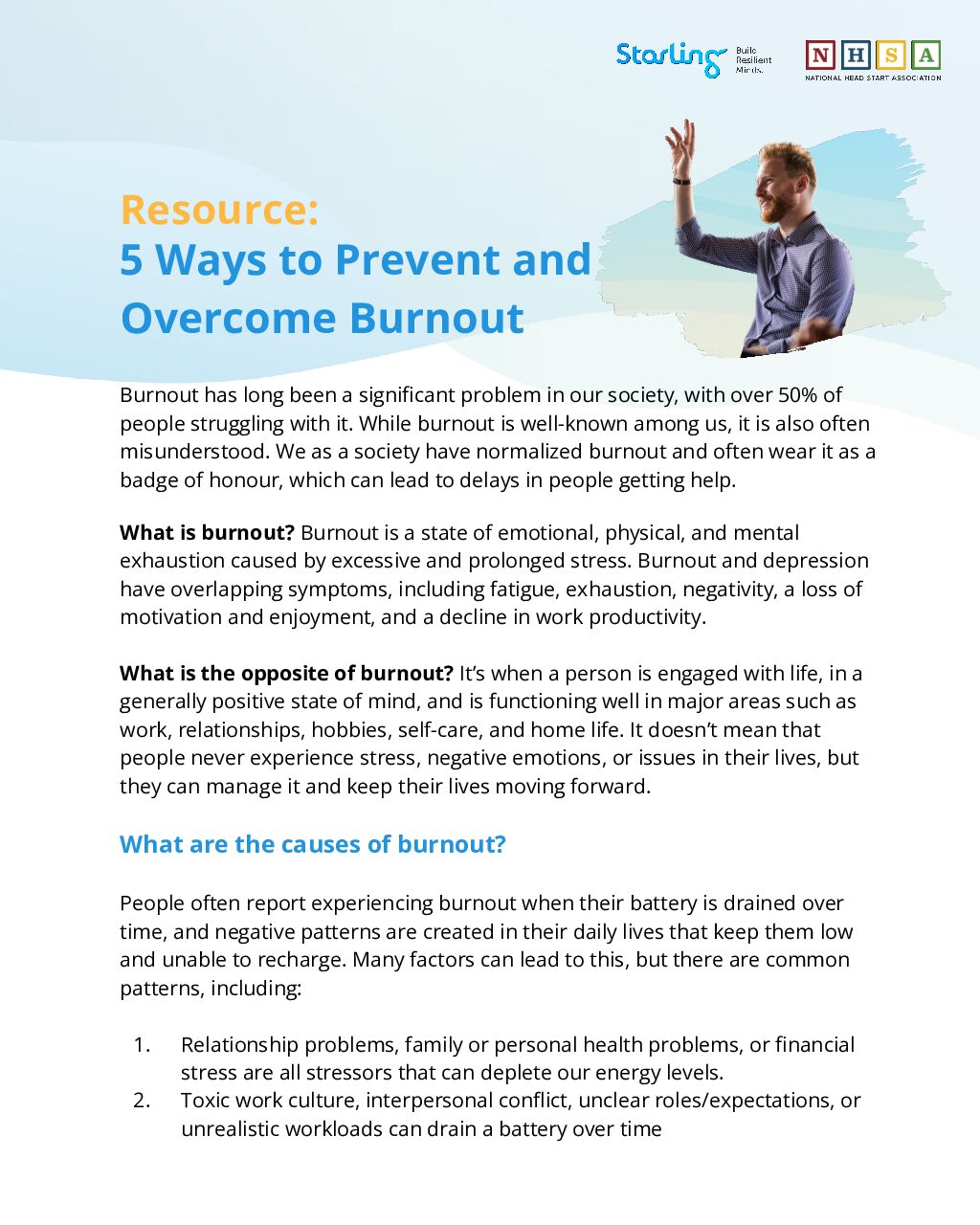Burnout has long been a significant problem in our society, with over 50% of people struggling with it. While burnout is well-known, it is also often misunderstood. We as a society have normalized burnout and often wear it as a badge of honor, which can lead to delays getting help.
What is burnout?
Burnout is a state of emotional, physical, and mental exhaustion caused by excessive and prolonged stress. Burnout and depression have overlapping symptoms, including fatigue, exhaustion, negativity, a loss of motivation and enjoyment, and a decline in work productivity.
What is the opposite of burnout?
It’s when a person is engaged with life, in a generally positive state of mind, and is functioning well in major areas such as work, relationships, hobbies, self-care, and home life. It doesn’t mean that people never experience stress, negative emotions, or issues in their lives, but they can manage it and keep their lives moving forward.
What are the causes of burnout?
People report experiencing burnout when their battery is drained over time and negative patterns are created in their daily lives that keep them low and unable to recharge. Many factors can lead to this, but there are common patterns, including:
- Relationship problems, family or personal health problems, or financial stress are all stressors that can deplete our energy levels.
- Toxic work culture, interpersonal conflict, unclear roles/expectations, or unrealistic workloads can drain a battery over time
The exact factors differ for everyone, but take the same toll on our batteries. The common issue is that it is a struggle to change the contributing patterns.
How to Prevent and Combat Burnout
- Step 1: Meet yourself where you are at. This is a critical step to prevent burnout, as you need to understand where you are to get the right level of help. To understand which burnout stage you are at, visit Stages of Burnout.
- Step 2: Identify your stressors and patterns. Determine what is contributing to depleting your battery. Identifying your stressors and thoughts impacting your mental health will better arm you with the knowledge you need to prevent and combat burnout.
- Step 3: Change patterns that drain your battery. Changing negative thought and behavioral patterns will allow you to build new ones because, at the end of the day, it comes back to the old saying, “Insanity is doing the same thing over and over and expecting different results.”
- Step 4: Build new, healthier patterns. You would be putting yourself on a better trajectory by building new, healthier patterns. As your battery recharges to higher levels, you should feel an increased sense of confidence, assertiveness, and decisiveness.
- Step 5: Ask for help if needed. This can be difficult for conscientious people because they generally like to be regarded as competent. It can be hard to admit that they are struggling, but it’s an essential step to take to get help.
For more resources on how to nurture your mental health, explore our Mental Health Toolkit.
About Dr. Andrew Miki: A practicing clinical psychologist for over 10 years, Dr. Miki is the founder of Starling Minds. His goal is to offer a software service that empowers people anywhere in the world to improve their mental fitness.


